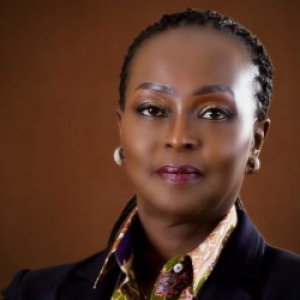President of the Georgetown Chamber of Commerce and Industry
CSO Partners
Youth partners
Heads and Representatives of the diplomatic corps,
UN colleagues, friends, good morning.
The UN System in Guyana has a proud history of collaborating with the Ethnic Relations Commission (ERC). It is my privilege to continue this collaboration and to coordinate support from across the UN system for the 'Countering Hate Speech' campaign launched by the ERC today. Thank you to the Commissioners, CEO and staff of the ERC for your willingness to collaborate with the UN System to advocate around this very important issue. I also wish to thank my UN agency colleagues who have given me this opportunity to convey coordinated UN support to this very important campaign by signaling the offers and tools that they can avail for this campaign. I acknowledge Mr. Gerardo Noto, UNDP Representative and other UN agency colleagues who join us today.
While hate speech has been a persistent presence in our societies for many years, social media and the many new forms of mass communication enabled by technology give it a new shape, a new urgency as a matter which requires collective response. Hate speech is a marker, an early warning sign of discrimination, abuse, violence, conflict, and even of crimes against humanity. This is why in 2019 Secretary-General António Guterres launched the United Nations Strategy and Plan of Action on Hate Speech, which highlights the UN’s ongoing commitment to promote peaceful, inclusive and just societies.
There is no international legal definition of hate speech. The United Nations Strategy and Plan of Action outlines the parameters of hate speech as “any kind of communication in speech, writing or behavior that attacks or uses pejorative or discriminatory language with reference to a person or a group on the basis of who they are.”
Hate speech often targets race, ethnicity, religion, belief, or political affiliation. Women, migrants, people living with HIV/AIDs, persons with disabilities, the LGBTIQ community often find themselves at the receiving end of hate speech. Our UNWOMEN colleagues warn us that women in public eye, such as politicians or civil society activists are far more likely to be assaulted or insulted by hate speech.
Around the world, the UN partners with governments, universities, local authorities, constitutional entities and CSOs to address hate speech. In the region, the UN supported Costa Rica in developing its first action plan to address hate speech and discrimination, following a country study. Brazil is also being supported to analyze hate speech in its country context. Presently, the Global Principles for Information Integrity to guide decision-makers around the issues of hate speech is being prepared.
Addressing hate speech does not mean limiting or prohibiting freedom of speech. Nipping hate speech at the bud is as much about education and positive messaging intended to keep hate speech from escalating into something more dangerous that is prohibited under criminal law. #NoToHate campaigns and the work that the ERC is embarking on today is precisely about that.
Adolescents and young people are often most affected by hate speech, particularly online. That is why young people must also be at the center of, rather the agents of any effort to prevent hate speech. As we speak, member states of the UN are convening a discussion on “investing in the power of youth for countering and addressing hate speech.”
I thank the Ethnic Relations Commission for associating the UN in Guyana to this important campaign. Several parts of the UN System are supporting the campaign, including OHCHR, UNICEF, UNDP, UNESCO, UNHCR, IOM and UN Women. Through their own workstreams, UN Agencies have incorporated elements of hate speech such as UNICEF’s cyberbullying and internet safety work with national authorities.
These efforts will not address all the problems of hate speech, but we do hope that it is a positive start to examining and tracking hate speech in Guyana’s context, understanding the public discourse and forms of hate speech, bringing together stakeholders, raising awareness to make spaces – both online and in-person, safer for all forms of gathering.
We all have a role and responsibility to counter intolerance, prejudice and stereotypes wherever they are found.
Thank you.





